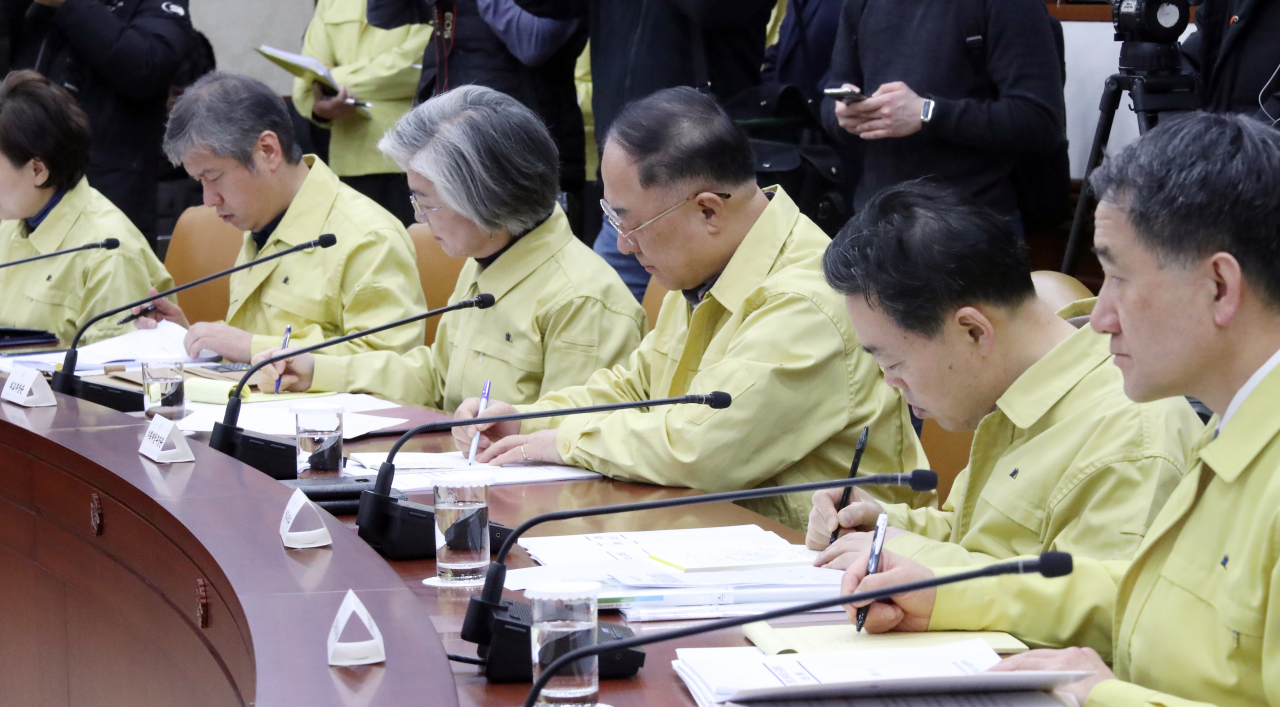Korea’s growth outlook hit hard as coronavirus outbreak prolongs
Eyes fixed on BOK’s upcoming economic outlook revision results
By Bae HyunjungPublished : Feb. 9, 2020 - 16:27

The new coronavirus outbreak that originated in China is affecting South Korea as global investment banks and research institutes are drastically lowering their economic growth outlook for this year.
While the government still maintains its forecast of 2.4 percent growth, some skeptical research institutes have slashed the figure -- with the lowest estimate at 1.5 percent.
According to the latest survey conducted by Bloomberg on key investment banks and institutes, respondents predicted that Korea’s exports will climb 2.1 percent on-year in 2020, down 0.2 percentage point from the previous month’s survey.
The most pessimistic was Oxford Economics which said that Korea will see its export grow only 0.5 percent this year. Societe Generale and JP Morgan Chase suggested 1.7 percent and 1.8 percent, respectively.
In its yearly economic policy blueprint announcement in December, the Korean government forecast the nation’s exports to expand 3 percent on-year to $506 billion, on the back of the rebounding semiconductor business and global market recovery.
But in January, Korea’s export volume slipped 6.1 percent from a year earlier to $43.35 billion, prolonging the downturn for 14 months straight.
While the government attributed the fall to the Lunar New Year holiday and underlined the rebound in the daily average export volume, overseas observers pointed out that Korea has already started facing the fallout from the epidemic and economic struggles.
“Korea is highly likely to see its exports weaken in February as the shutdown of Chinese plants exerts pressure on the demand for intermediary goods,” London-based Capital Economics said in a report.
Also, global credit ratings agency Moody’s said in a report last week that key Korean companies will directly have a negative impact from the dwindling consumer sentiment and consequent disruption in the regional and global supply chains.
Taking the heaviest blow will be the logistics, automobile, semiconductor, chemical, and steel industries, according to Moody’s.
As Seoul’s economy is marked for its high reliance on exports and equipment investments, such pessimism has led observers to lower their GDP outlook -- both for the global economy and the Korean economy.
According to a report released by Moody’s, the global GDP growth outlook for this year has been revised to 2.5 percent, down from the previous 2.8 percent.
The report was based on the premise that China will suffer similar level of economic damages as during the severe acute respiratory syndrome outbreak in 2003.
While Seoul’s central bank is largely anticipated to lower this year’s GDP growth outlook later this month, some private institutions have already slashed their forecasts.
The most drastic reaction came from Capital Economics, which cut its outlook by an entire percentage point to 1.5 percent from the previous 2.5 percent.
The Bank of Korea is set to unveil its revised economic outlook on Feb. 27, amid speculation that it will lower the growth pace from the previously suggested 2.3 percent.
By Bae Hyun-jung (tellme@heraldcorp.com)


![[AtoZ into Korean mind] Humor in Korea: Navigating the line between what's funny and not](http://res.heraldm.com/phpwas/restmb_idxmake.php?idx=644&simg=/content/image/2024/04/22/20240422050642_0.jpg&u=)



![[Herald Interview] Why Toss invited hackers to penetrate its system](http://res.heraldm.com/phpwas/restmb_idxmake.php?idx=644&simg=/content/image/2024/04/22/20240422050569_0.jpg&u=20240422150649)

![[Graphic News] 77% of young Koreans still financially dependent](http://res.heraldm.com/phpwas/restmb_idxmake.php?idx=644&simg=/content/image/2024/04/22/20240422050762_0.gif&u=)





![[Exclusive] Korean military to ban iPhones over security issues](http://res.heraldm.com/phpwas/restmb_idxmake.php?idx=652&simg=/content/image/2024/04/23/20240423050599_0.jpg&u=)



